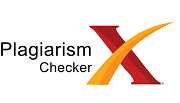The ethics of publishing articles in a journal is an important thing. This is necessary for standardization of ethical behavior to all parties involved in the publication of this community service journal, namely: writers, editors, reviewers.
- 1. Author's Publication Ethics
- Reporting Standards: Authors must present accurate reports and data from the results of community service. Articles resulting from community service must contain detailed information and sufficient references. Deliberate deception of the content of a manuscript is unethical and unacceptable behavior.
- Originality and Plagiarism: The authors must ensure the authenticity of their writings and provide clear information/sources when using quotations. Authors are not allowed to publish their community service manuscripts in more than one journal because submitting the same manuscript to more than one journal simultaneously is unethical and unacceptable behavior.
- Acknowledgment of Sources: Proper acknowledgment of the work of others should always be included. Authors must cite publications that have been used to base the creation of an article.
- Authorship of the Paper: Papers should be limited to authors who have made a significant contribution to the conception, design, implementation, or interpretation of the reported community service activity. All authors who have made significant contributions must be listed as co-authors. Authors who participate in substantive aspects of a study must be recognized or registered as contributors. The lead author must ensure that co-authors are eligible for inclusion on the list of researchers and all authors must see and approve the final version of the manuscript to be published.
- Disclosure and Conflicts of Interest: Each author must disclose in their manuscript any substantive financial or interest that may be construed to influence the outcome of a manuscript.
- 2. Editor's Publication Ethics
- Maintain the integrity of the author's academic track record,
- Submit corrections, clarifications, withdrawals, and apologies when necessary,
- Responsible for the style and format of the written work, while the content and all statements in the written work are the responsibility of the author/writer,
- Actively solicit opinions from authors, readers, reviewers, and members of the editorial board to improve the quality of publications,
- Encouraging an assessment of the journal if there are findings,
- Support initiatives to reduce research and publication errors by asking authors to attach an Ethics Clearance form that has been approved by the Ethics Clearance Commission,
- Support initiatives to educate researchers on publication ethics,
- Do not defend your own opinion, the author or a third party that may result in an unbiased decision,
- Encouraging authors/writers to make improvements to their written work so that it is worthy of publication.
- 3. Reviewer Publication Ethics
- Received an assignment from the editor to review the written work and submit the results of the study to the editor, as a material for determining the feasibility of a written work to be published.
- The reviewer may not conduct a review of the written work that involves himself, either directly or indirectly
- Maintain the author's privacy by not disseminating the results of corrections, suggestions, and recommendations by providing criticism, suggestions, input, and recommendations
- Encouraging authors/writers to make improvements to their writings
- Review the written work that has been corrected in accordance with predetermined standards.
- Papers are reviewed in a timely manner according to the style of the publication environment based on scientific principles (data collection methods, author's legality, conclusions, etc.).









